Top ranking of the most demanded plastic surgeries in 2020

There are many surgeries that doctors use to make the patient's image more attractive. You can change almost any part of the body and make it perfect by trusting an experienced surgeon. New discoveries in this area have changed plastic surgery beyond recognition, and its possibilities are simply amazing. It seems that there are no impossible tasks for her, since any part of the body can be changed and improved.
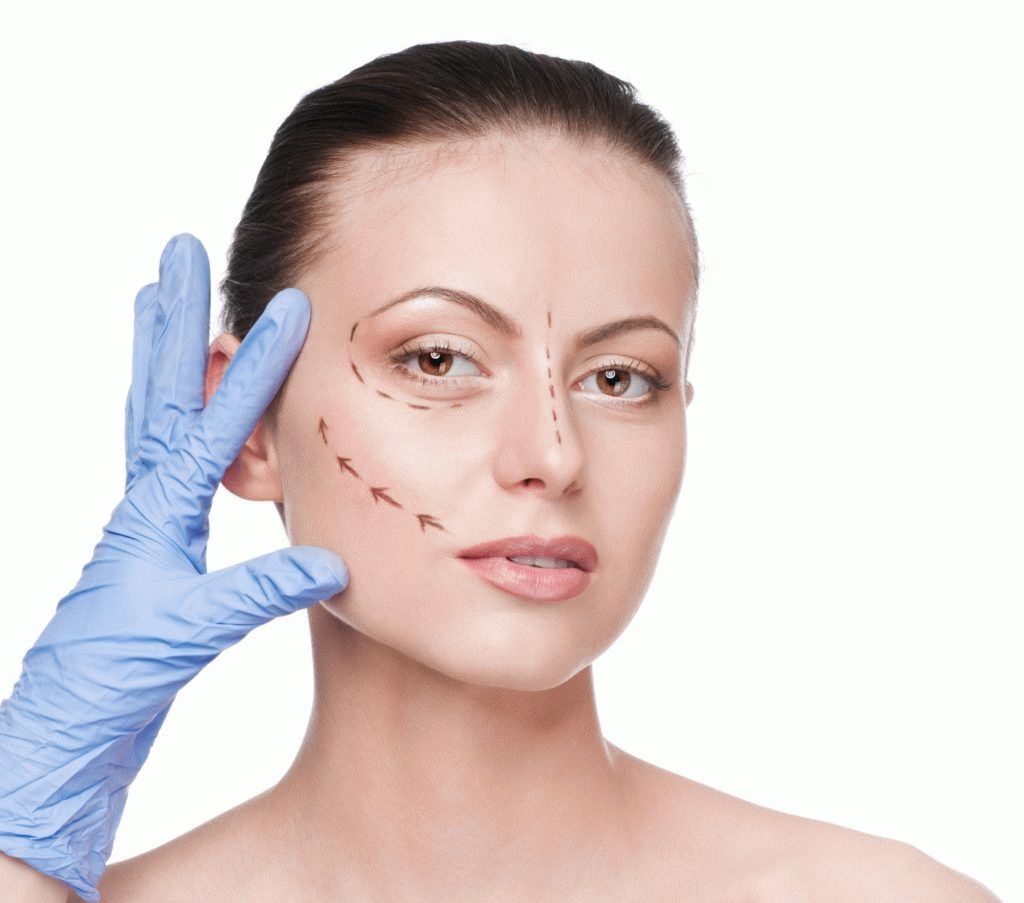
What is plastic surgery?
This is a section of surgery that, with the help of surgical intervention, eliminates defects in organs and tissues on its surface.
The first plastic surgery was carried out in India in the 6th century BC. According to legend, it was a nose restoration. Nowadays rhinoplasty is one of the directions in the field of facial aesthetic surgery.
In general, face plastic is aimed at eliminating wrinkles; preventing skin withering and the formation of nasolabial folds and other signs of aging. In doing so, surgeons either remove excess tissue or tighten the corresponding facial muscles.
Types of plastic surgery.
- Reconstructive surgery deals with the elimination of tissue and organ defects, both congenital and acquired. Thanks to such operations, a person can again return to a full life and feel healthy. They are often medically indicated. This type of plastic surgery is used to correct mitral valve defects, nasal septum, and eye problems caused by excess skin in the upper eyelid.
- Aesthetic surgery is the application of plastic surgery techniques to correct your appearance. With its help, each person can get rid of the flaws in his body that he does not like and improve the quality of life.
Facial microsurgery, or maxillofacial surgery.
This direction of facial correction partly merges with face plastics, but partly is the field of "classical" surgery. It is a complex of restorative and reconstructive operations to correct various facial defects, congenital and acquired, anatomical and cosmetic. It is accompanied by the transplantation of both donor organs and tissues, and technologically created prostheses.
What influences the demand for a particular plastic surgery?
Studies in different countries show that the world's leading operations associated with non-invasive interventions (injections, injections, resurfacing, peeling). These treatments are widely used to rejuvenate and prevent skin aging. In second place is the plastic of the face, hair and chin.
Plastic surgery to change the shape and size of the mammary glands and liposuction take the third place. Each country may have its own trends, such as a change in the shape of the buttocks in Brazil or the shape of the eyes in Japan.
The demand for certain types of plastic surgery is directly related to the beauty standards adopted in a particular region.

To whom undesirable to do plastic surgery in principle?
There are people who generally do not want to do any surgery to change their appearance. This is influenced by the following factors:
- the presence of psychological diseases;
- pathological striving for perfection of face and body;
- people who cannot stop and undergo plastic surgery multiple times.
These are the categories of people who need a good psychologist, not a plastic surgeon. They are almost always unhappy with the result, and their problems are only exacerbated by this, no matter what types of plastic surgeries they have performed.
The discoveries made in medicine have taken plastic surgery to a whole new level. What previously could only be dreamed of is now successfully applied in practice.
Various types of plastic surgery are created so that a person can achieve the perfection of his body. Regardless of whether he wants to correct congenital or acquired defects. Every day, scientists are looking for new methods to make operations easier and better results.
The most popular plastic surgery in Russia and the CIS countries.
Cheiloplasty, or lip plastic.
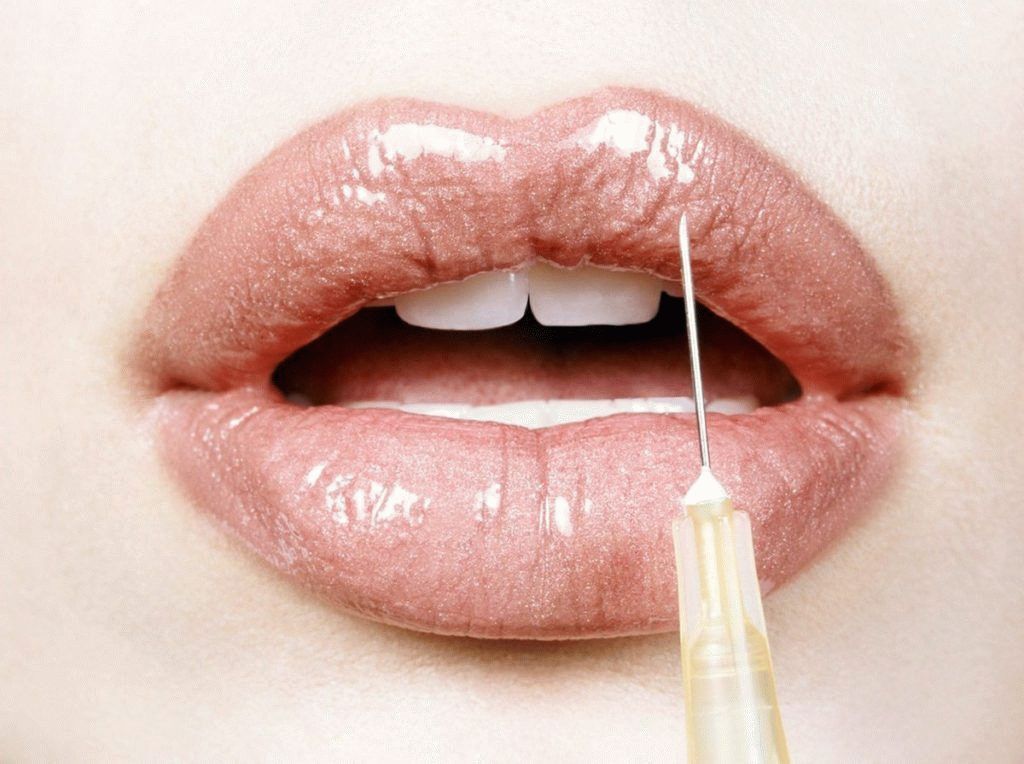
Cheiloplasty surgery is a surgical lip plasty. This type of intervention has two main directions - reconstructive and aesthetic.
Reconstructive lip cheiloplasty is performed in order to eliminate congenital or trauma-acquired defects. Aesthetic plastic is aimed at reducing or enlarging and correcting the shape of the lips. The operation can also be performed in childhood, when it comes to the need to make a surgical correction of the lips for congenital defects in this area.
To improve the aesthetics of the face, the task often arises of how to improve the contour of the lips, make it clearer and more symmetrical. It is quite easy to cope with this task today thanks to the ability to make lip correction - this operation is well tolerated and gives an excellent aesthetic result. Photos of the correction of asymmetry, contour, lip size allow you to verify this.
One of the most popular requests for changes in this area is lip augmentation, which is performed using lipofilling, biogel injection or surgery. Reducing plastics are much more rare, which in most cases is carried out with an unsatisfactory result of the previous corrective operation, if an excess volume of the lips was obtained.

If the question is about how to correct thin, crooked, asymmetrical lips or cope with any other defects in this area, then it makes sense to visit a plastic surgeon who will determine if the patient has indications for cheiloplasty.
There are two main groups of indications for correction:
- asymmetry of the lips;
- patient dissatisfaction with the size and shape of the lips.
More specifically, cheiloplasty allows you to correct the contour and volume of the lips, the shape of the lowered corners and the frenum of the upper lip. The operation helps to correct a saggy lip, eliminate scars, papillomas, cysts and other neoplasms and get rid of wrinkles in this area.Cheiloplasty makes it possible to remove the "cleft lip" or "cleft palate" - congenital defects that greatly harm the aesthetics of the face and adversely affect the health, full functioning of the oral cavity.
Aesthetic augmentation and reduction, as well as reconstructive cheiloplasty has contraindications, these include:
- chronic diseases in the acute stage;
- diabetes;
- oncological diseases;
- unhealed lesions in the lip area;
- violation of blood clotting;
- herpes in the acute stage;
- pregnancy and lactation.
The problem of how to correct asymmetry, raise the lowered corners of the lips, change the size, today is solved quite simply - by contacting a plastic surgeon. The doctor will tell you what types of upper and lower lip correction are shown and can be performed in a particular case. The doctor will inform about the peculiarities of lip correction with gel, fatty tissues, as well as with the help of surgical techniques.
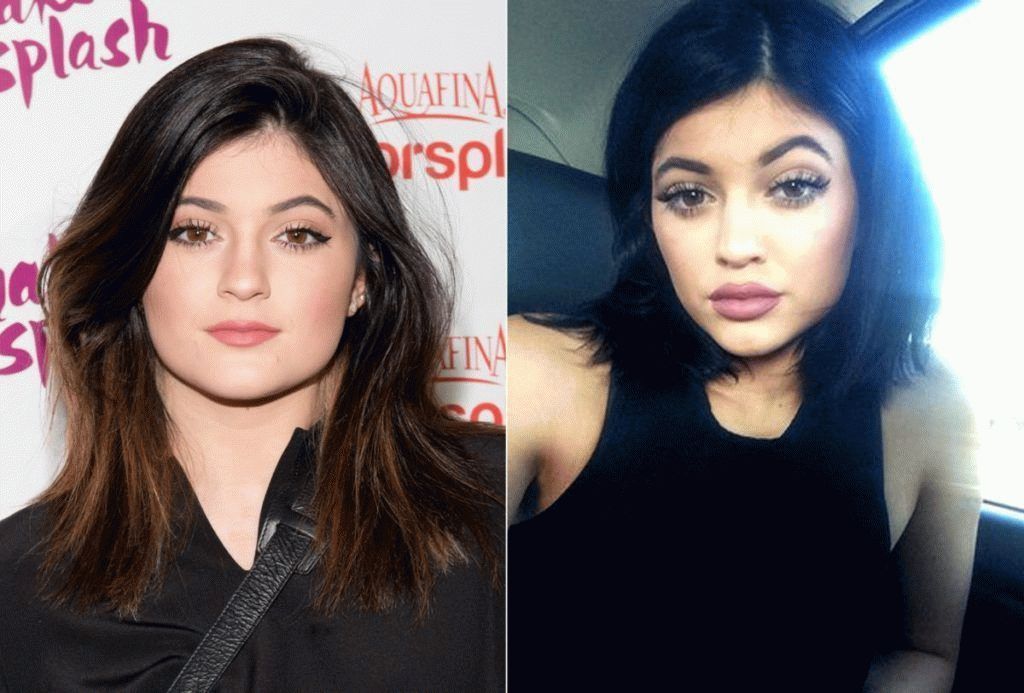
The most common method for lip correction is the introduction of fillers with hyaluronic acid (not to be confused with hyaluronic) into this area. The procedure is safe and performed under local anesthesia. The only drawback of lip augmentation with biogel is a short-term result - the effect lasts up to 12 months. The reason for this unstable result is that gels tend to dissolve in the body.
Lipofilling is also popular for correcting the shape and size of the lips. In this case, the patient's own adipose tissue, which has undergone preliminary cleaning and processing, is injected into the lip area. Fat cells for lipofilling are usually taken from the so-called "problem" areas - most often from the abdomen and thighs.
Usually, an amount of fat is injected that is one third higher than the desired volume of the lips, since about 30% of the fat cells will dissolve within the first 6 months. This procedure is performed under local or general anesthesia and usually lasts no more than 1 hour. The advantage of lipofilling is that the result can last up to 10 years.
Surgical techniques for cheiloplasty are more radical and involve correction using the patient's soft labial tissues. The following basic surgical techniques exist:
- VY cheiloplasty - the doctor makes one or more V-shaped incisions on the surface of the lip, then the inner surface of the lip is turned inside out to the desired state and the resulting shape is fixed with a Y-shaped suture. This type of correction allows you to significantly change the shape and size of the lips, while not depriving them of their naturalness. Depending on the number and length of incisions, it is possible to enlarge the entire lip or only its central zone;
- cheiloplasty Paris - this technique is performed in a manner similar to VY correction, only incisions are made in both the vertical and horizontal planes. This method allows you to get a fairly voluminous lips with a well-defined contour, with a protruding tubercle in the central part of the upper lip;
- shortening cheiloplasty - performed with an excessively long upper or lower lip. During the correction, an elliptical skin area is removed, after which the lips acquire symmetry and an aesthetic shape.
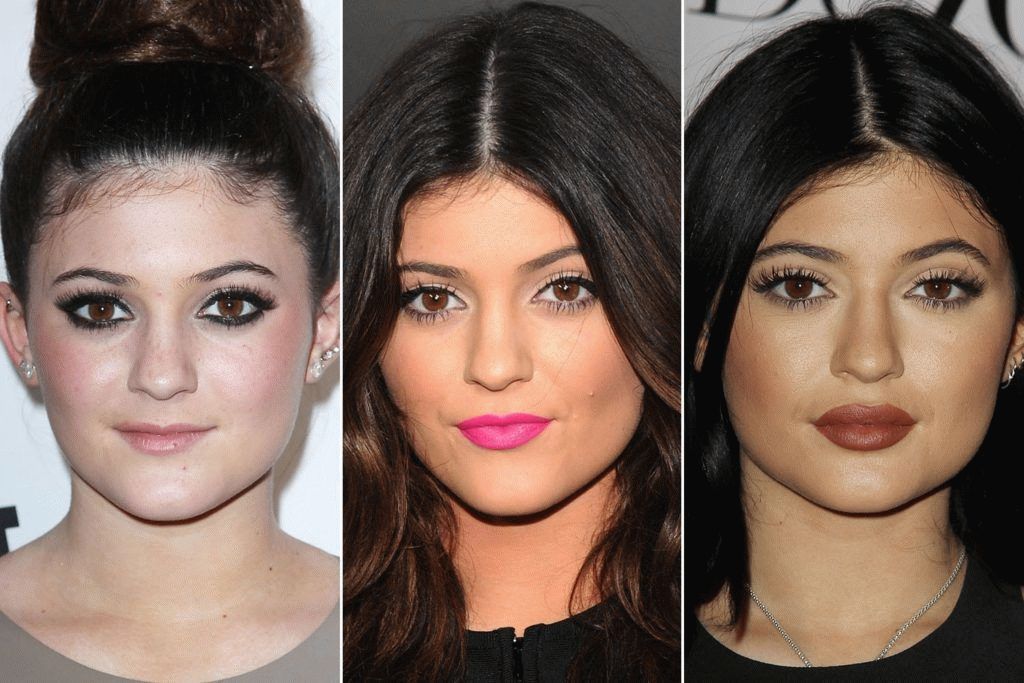
Lip reshaping and lip augmentation are performed under general or local anesthesia, depending on the method chosen. A hospital stay is not required - immediately after enlargement, correction of asymmetry, volume and other defects of the lips, as soon as the anesthesia ends, you can go home.
For approximately 1-2 weeks after the contouring of the lips, pronounced swelling and mild soreness may persist - these symptoms quickly cease to bother, they may be replaced by numbness. This loss of sensitivity in the lip area can last for 2-3 months.It will take about the same time for the scar after surgical cheiloplasty to even out and acquire a natural shade, that is, according to reviews and medical observations, it becomes almost invisible.
Average price: 65,000 rubles.
More details about cheiloplasty are in the video:
Rhinoplasty, or nose surgery.
One of the most popular operations today is rhinoplasty - this is a nose plastic, which is aimed at changing the size and shape or completely restoring a missing nose, as well as correcting congenital or acquired defects due to trauma.
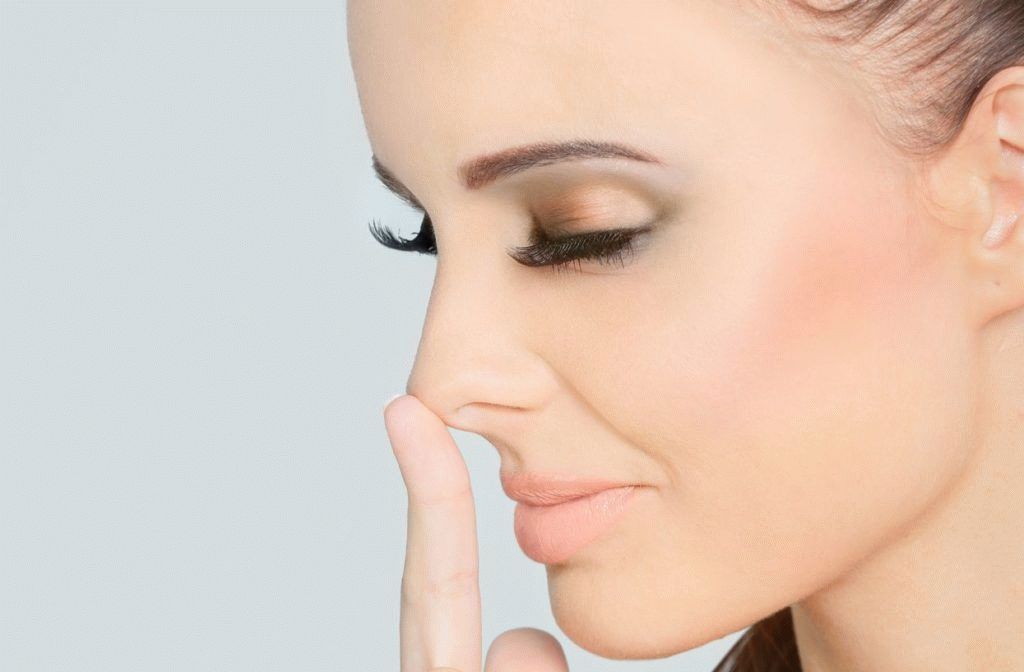
Rhinoplasty and septopasty (one of the directions that involve the treatment of a deviated nasal septum) are in great demand today. Correction allows you to solve a wide range of problems: in addition to correcting the septum, you can change the shape of the nostrils, reduce the tip of the nose, narrow its back, remove the hump or snub nose.
The opportunity to perform rhinoplasty has become a real salvation for many, since with the help of this operation it has become real to give the nose almost any shape - to shorten or lengthen, change the proportions, straighten or turn the tip upward. After rhinoplasty, the nose not only looks better (and you can find a lot of evidence on the forum), but during the operation it becomes possible to restore full nasal breathing, that is, to solve medical problems.

Rhinoplasty is recommended if you need to solve the following problems:
- remove a large or small hump on the nose (including that formed after a fracture);
- correct large, unnecessarily dilated nostrils;
- change the size of the nose (including correcting a large nose with a hump);
- change the shape of the nose;
- correct an overly thickened, upturned or drooping, hooked nose tip;
- correct a violation of nasal breathing in children and adults;
- eliminate congenital or post-traumatic defects;
- Correct a deviated nasal septum
After rhinoplasty for a hump or any other flaws performed in the summer, you will definitely need to protect your nose from direct sunlight and use a special sunscreen. If this limitation is problematic for you, it is better to plan an operation on the nose in order to remove the hump, change the shape of the nostrils, get rid of snub-noses and other aesthetic problems in the autumn-winter period.
The key indication for plastic surgery of the wings, septum, tip, correction of the hump of the nose and other changes is the patient's dissatisfaction with his own appearance, when the defect causes complexes and makes life incomplete.
Contraindications to nose correction (including septoplasty - restoration of the correct shape of the nasal septum) are:
- severe diseases of internal organs;
- severe acne and inflammation of the hair follicles in the nasal area;
- impaired blood clotting;
- diabetes;
- viral infections;
- mental illness.
In some cases, tip rhinoplasty, nasal hump surgery, septum correction and other types of surgery in this area may not be performed if the patient has not yet reached the age of 18.

Rhinoplasty surgery is performed by a plastic surgeon for 1-2 hours, depending on the complexity of the intervention and the chosen method.
Open rhinoplasty is a nose correction in which incisions are made in the natural nasal folds, namely at the skin bridge between the nostrils and, if required, at the base of the nostril. In some cases, the incision is performed only on the skin between the nostrils, and the doctor makes all other incisions in the inner nasal cavity.
During this procedure, the surgeon separates the skin from the bone and cartilage tissue, after which he performs the necessary set of actions, determined by the patient's problems.Depending on this, excess cartilage and / or bone tissue is removed, the missing volume is increased due to cartilage or bone grafts, which are taken directly from the patient himself.
Open nose contouring is performed, as a rule, for large-scale work, as well as in the case of secondary correction. The advantage of this method is that the operating physician gets a good overview and the ability to accurately match the tissues and perform suturing. However, this operation requires a longer rehabilitation period than with the closed method, and quite noticeable scars can remain after the plasty.
Closed rhinoplasty is a correction in which the surgeon performs all incisions exclusively inside the nasal cavity, using, in professional terms, an endonasal approach. The incisions are made symmetrically, they will bend around almost half of the nostril ring.
The operation is performed through rather narrow openings and in conditions of very limited visibility, therefore, this method requires the highest qualifications of a doctor. During the operation, the cartilage and bone tissues of the nose are changed, as well as the excision of excess soft tissues in this area. The advantage of the closed method is in the absence of scars, a faster visible result and easier rehabilitation (less pronounced edema in the postoperative period).
A separate direction is repeated (another name - revision) rhinoplasty, which is necessary to solve the problems that have arisen after the primary correction. With this type of intervention, closed or open rhinoplasty can be performed, depending on the indications.
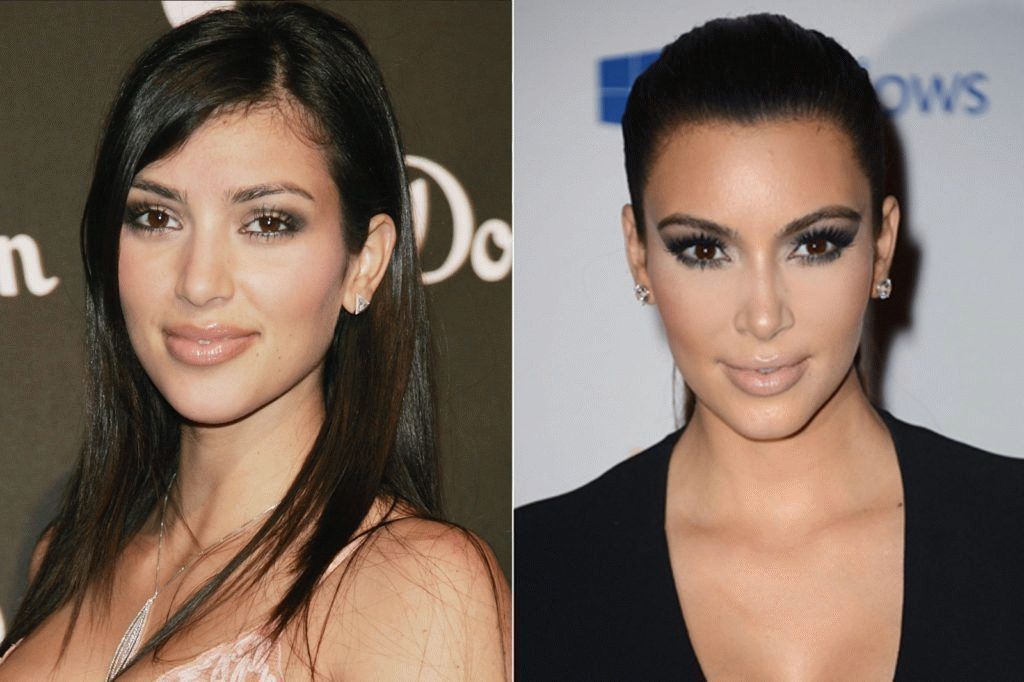
After rhinoplasty (including septoplasty of the nasal septum), the doctor applies a plaster cast to the corrected nose, it will need to be worn for 5-10 days. In order to prevent bleeding and to fix the new shape of the nose, special turundas are inserted into the nasal passages, which will be removed one day after the operation. After performing simultaneously septoplasty and rhinoplasty, the turundas are removed from the nose for approximately 2-3 days. During this time, patients experience the greatest discomfort due to the need to breathe through the mouth.
In the postoperative period after rhinoplasty, according to medical practice and patient reviews, in some cases bruising can be observed, often very pronounced, in the eye area. Visible swelling usually goes away within a month, but in rare cases it can last up to 6 months or more. In order to quickly eliminate the puffiness, the doctor may prescribe a course of hardware cosmetic procedures.
At all stages of recovery after septoplasty and other types of nasal plastics, it will be necessary to independently perform the procedures prescribed by the doctor, namely, to clean the nasal passages and then lubricate them with special medicinal formulations. You need to know that the appearance of the nose will change throughout the entire postoperative period, which is explained by the processes of scarring and skin contraction in the corrected areas.
During the rehabilitation period after nose surgery, in order not to provoke an increase in edema, the patient must avoid drinking alcohol, prolonged exposure to the sun, active physical activity, visiting the solarium and sauna.
When evaluating the final result of plastics, you need to understand that perfect symmetry can not always be achieved. Nor should the result be expected to be exactly the same as the simulation prior to the operation. Computer simulation is only a guideline that the doctor uses during the operation. Human tissues are not so flexible and do not have such stability, so even the best surgeons cannot calculate the result down to a millimeter.
Average price: 75,000 rubles.
Some features of rhinoplasty from a professional - in the video:
Augmentation mammoplasty, or breast plastic surgery.
Augmentation, or augmentation, mammoplasty is a breast augmentation with surgery. This type of plastic is one of the most popular and demanded, an increase in breast volume for many means a radical change in life, getting rid of an inferiority complex, embarrassment in intimate life, getting the opportunity to wear clothes that they like.
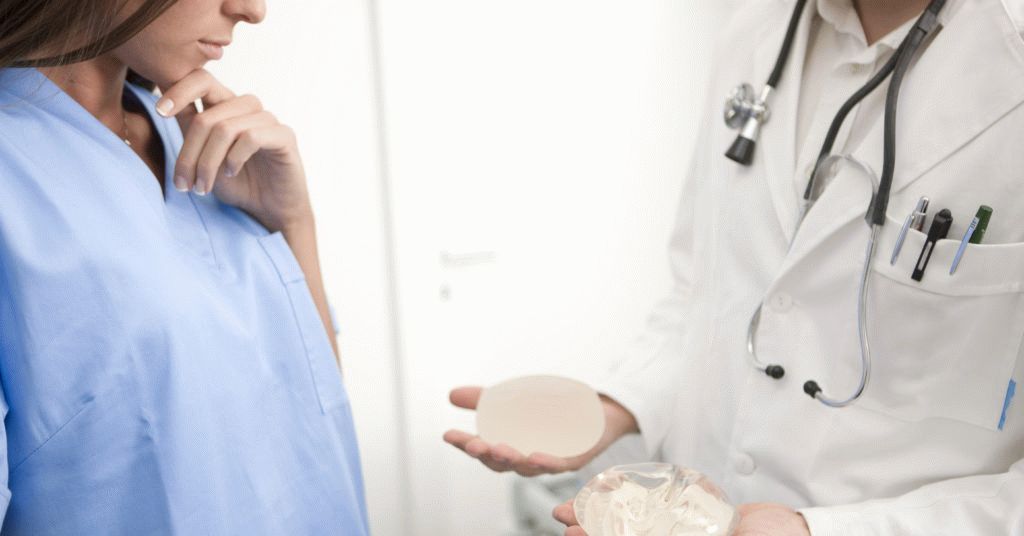
Breast augmentation surgery allows you to improve the volume and shape of the breast, to make it firm and taut. No creams, pills and exercises can give such an effect, only breast augmentation surgery can cope with this task. This is the safest, most reliable, predictable way to give your breasts appetizing, seductive shapes. The result of such a correction largely depends on the professionalism of the surgeon, therefore, breast augmentation should be carried out in a specialized clinic in which doctors with relevant experience work.
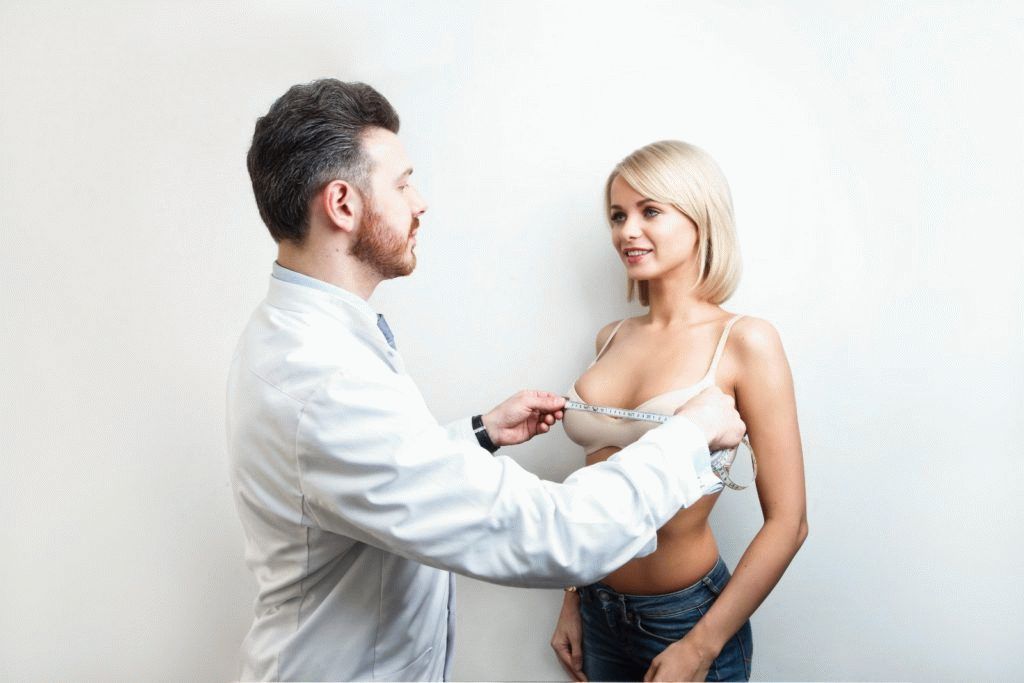
The decision to undergo breast augmentation surgery can be made for the following indications:
- hypoplasia - underdevelopment of the mammary glands;
- micromastia - small breasts from birth;
- ptosis (prolapse) of the breast;
- partial or complete removal of one or two breasts;
- asymmetry of the mammary glands;
- post-lactation involution - a decrease in breast volume, its sagging, loss of elasticity, deformation of the nipple-areola complex.
Contraindications to plastic breast augmentation:
- age up to 18 years - it is necessary to wait until the breast is fully formed;
- oncology;
- serious diseases of internal organs;
- infectious diseases;
- pregnancy and incomplete lactation;
- blood clotting disorders;
- diabetes.
Scars after breast enlargement tend to whiten over time and become less noticeable. After about 12 months, the scars may be virtually invisible.
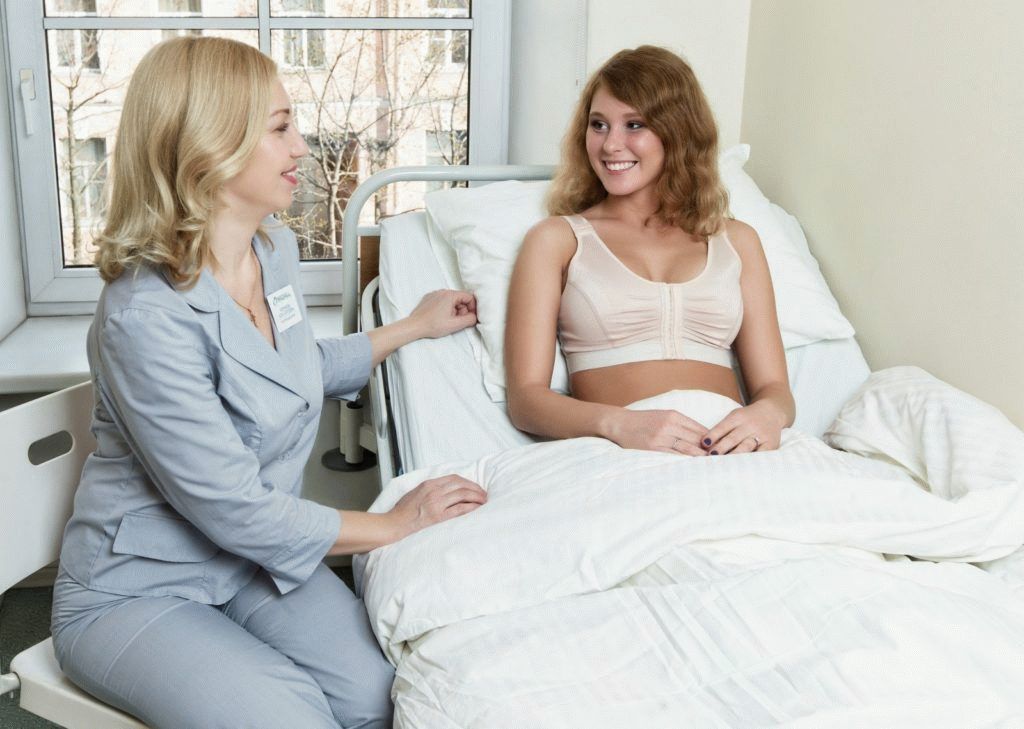
Augmentation mammoplasty is a breast endoprosthetics with different volume, type of surface, filling with implants. In shape, breast endoprostheses are round, anatomical (drop-shaped), asymmetrical (their shape is different for two mammary glands). Anatomical implants are used for significant breast augmentation, while they allow you to achieve the most natural look. Round endoprostheses are more often used for a slight increase in volume
By the type of filling for breast augmentation, silicone is the most popular, and in some cases, salt endoprostheses are installed. By the type of surface, implants can be smooth and rough (textured surface reduces mobility). By the type of profile, low and high implants are used for breast augmentation.
When choosing the size of an implant for a plastic surgery for breast augmentation, the doctor takes into account, in addition to the patient's wishes, the type of her figure, the structural features of the chest, height, body proportions and the current size and condition of the breast. The endoprosthesis is selected in such a way as to be completely covered with tissues in order to avoid delineating the border of the implant.
In plastic surgery for breast augmentation, the method of installing an endoprosthesis is chosen by the doctor, taking into account the medical indications and wishes of the patient. The most preferable is submuscular, since in this case the muscle holds the implant, thereby reducing the risk of capsular contracture - excessive thickening of the fibrous membrane, which leads to compression of the prosthesis and causes its deformation, asymmetry. Installation under the gland allows to preserve muscle fibers, as a result of which the patient experiences less discomfort in the postoperative period, but with such an arrangement it is not always possible to hide the contours of the implant.

In the early postoperative period, pain may occur that can be stopped by taking pain relievers prescribed by your doctor.After breast augmentation surgery, the breast is fixed with special pressure bandages. Although changes in shape and size will be noticeable immediately, the final appearance of the gland will take about 1.5-2 months, when a capsule of fibrous tissue is formed around the endoprostheses and the inflammatory processes in the soft tissues disappear.
After surgical breast augmentation, swelling and bruising may persist for the first two weeks. For about a month, the patient is prescribed to wear special compression underwear. Surgical sutures are removed 7-10 days after the intervention; in some cases, a self-absorbable material is used for the sutures, which does not require removal. At first, the postoperative scars will be quite dense and red, but gradually they will turn into a thin, almost invisible, flesh-colored line.
During the rehabilitation process after breast augmentation for 5 weeks, it is not allowed to visit the pool, as well as the sauna and solarium, serious physical activity is prohibited. After breast augmentation surgery, according to patient reviews and medical observations, in the first 2-3 weeks there may be slight soreness when touched, tension in the area of the mammary glands. The final results of breast augmentation can only be seen after 6-12 months. A year after surgical correction, provided that high-quality endoprostheses are installed, the woman still has the possibility of breastfeeding.
Average price: 100,000 rubles.
Answers to popular questions about mammoplasty - in the video:
Liposuction, or removal of fat deposits.
The ideal figure has never been given to anyone for nothing. Most often, beautiful forms are the result of constant self-improvement. We are talking about a special diet, regular physical activity, rejection of bad habits. However, even this is not enough, therefore, for body shaping, many decide on a surgical operation.
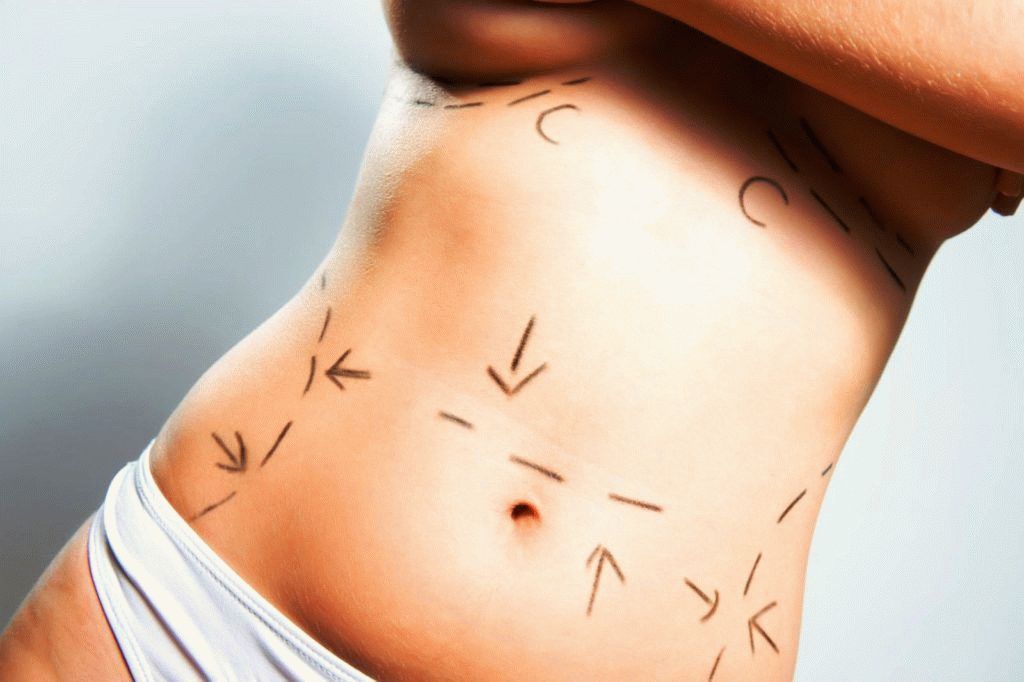
The main problem on the way to a perfect body is fat, which tends to linger in the most visible places - the waist, abdomen, face, hips, arms. Moreover, it is not so easy to remove it with the help of diets, exercise and massage, and the only way to remove or reduce excess subcutaneous fat is liposuction of the abdomen and other parts of the body.
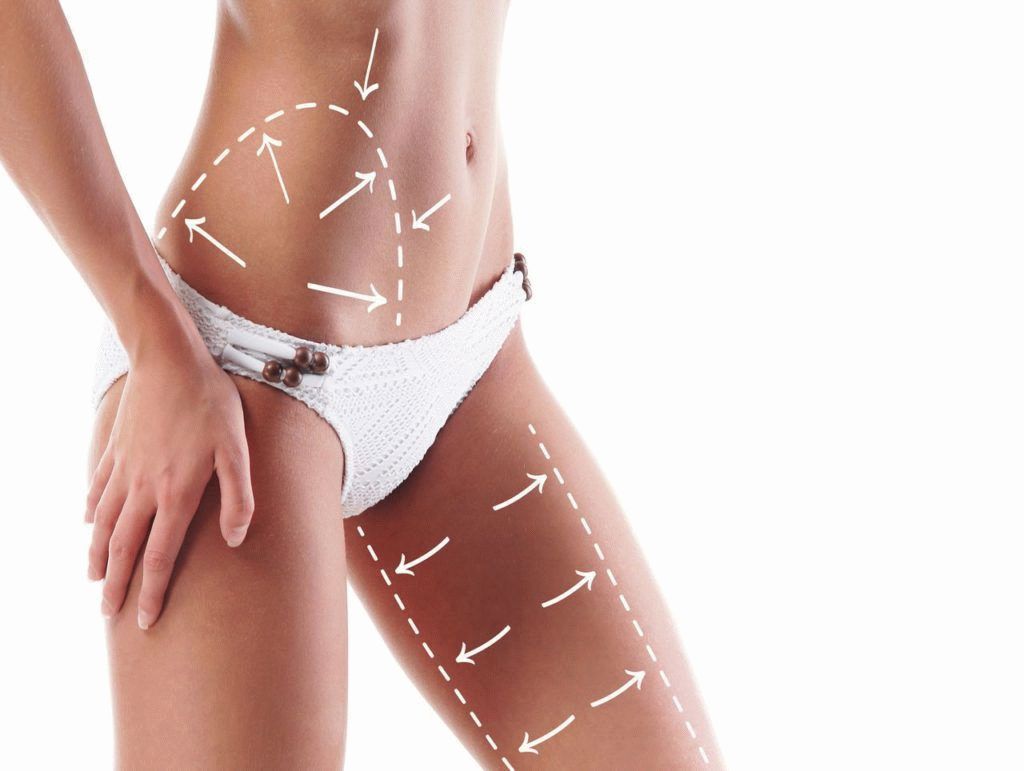
Liposuction of legs, hips, knees, arms is performed after a thorough medical examination, since a person's desire to quickly remove fat under the skin of the face, from the sides, buttocks, and also from the inner thigh is not enough. In order to have liposuction of the face, cheeks and chin, the patient must be completely healthy. In both men and women, subcutaneous fat on the body, abdomen, legs and face is removed, provided that there are no contraindications. Do not expect liposuction to help you lose weight. Its task is to remove localized fat deposits.
Indications:
- disproportionate obesity;
- violation of the proportions of the figure and face due to the accumulation of adipose tissue.
Contraindications:
- diabetes;
- oncology;
- diseases of the internal organs;
- endocrine diseases;
- blood clotting problems.

The very principle of liposuction itself clearly demonstrates how you can quickly remove internal subcutaneous fat from all parts of the body: from the inner thighs, sides, chest (pectoral muscles), lower abdomen, knees, face, legs, shoulders, armpits, priests, press, arms, buttocks, under the arms, from the back and abdomen.
The main instrument of the surgeon during the operation is blunt cannulas. They are hollow-structured needles. Fat is sucked out through small holes in the skin using a vacuum apparatus. In this regard, this type of liposuction is called vacuum.
Tumescent liposuction is similar to the vacuum method, but before the intervention, the doctor injects a special solution under the skin, which narrows the blood vessels and swells the fatty tissue, which makes it easier to remove.
The ultrasonic method allows you to soften adipose tissue by using a special ultrasonic probe and easily suck it off with cannulas.
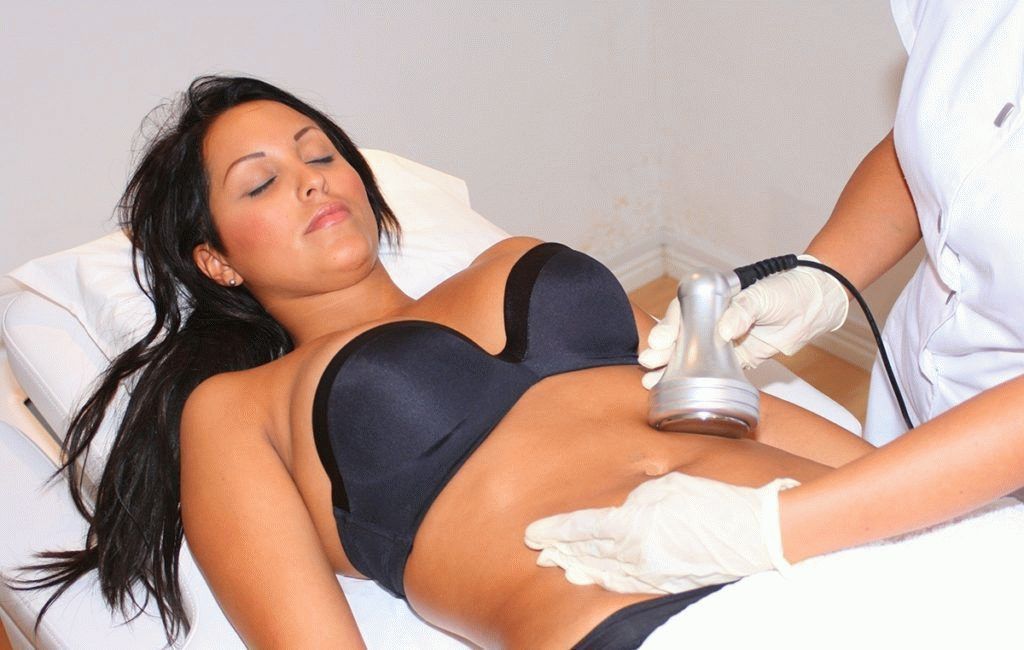
If the patient decides to remove excess subcutaneous fat from the abdomen, one should be prepared for the intervention under general, less often local, anesthesia, lasting from half an hour to two hours. Each puncture requires a suture. The stitches are removed on the 7th day, while in the hospital you will have to stay from 2 to 3 days. During the month, you need to wear special compression underwear and avoid serious physical exertion. Painful sensations are practically absent, but outwardly, for some time there is edema, which will soon disappear.
Average price: 65,000 rubles.
Myths and truths about liposuction - in the video:
Gluteoplasty, or buttock augmentation.
Beautiful buttocks - not only harmonize the figure, making it feminine and attractive. Their correct shape allows you to easily select a wardrobe in any style, and not give up tight trousers, as well as boldly go to the beach and visit the pool. Unfortunately, not every woman can boast of this part of the body: most have to hide their flat bottom under their clothes and experience a lot of complexes.
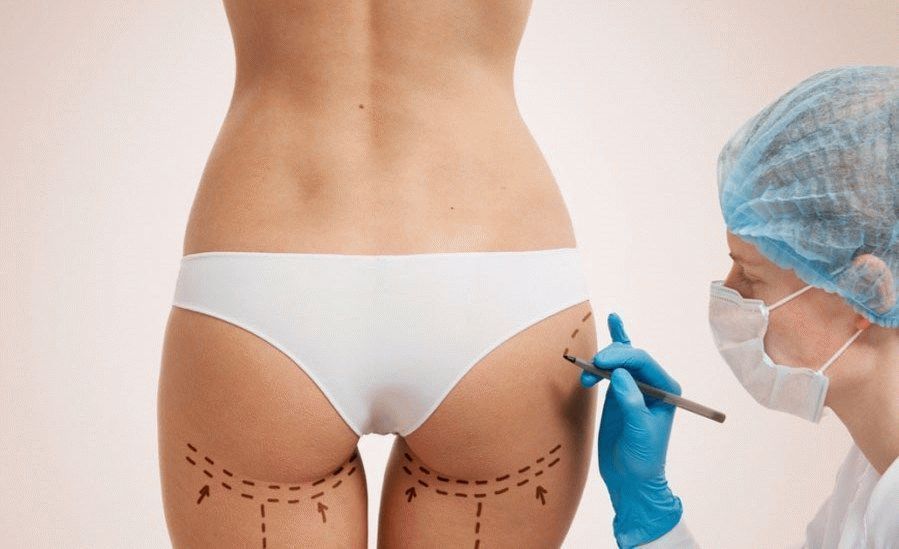
Instead of torturing yourself in gyms for months, trying to achieve at least the minimum result with the help of massage, decide on plastic surgery to increase the buttocks. For this purpose, the method of endoprosthetics with the use of silicone implants is most often used.
The main indication for the intervention is the patient's personal desire to correct buttock defects of the following nature:
- small size;
- omission;
- sagging skin;
- age-related muscle flabbiness.
The ban on gluteoplasty is most often associated with general problems of the body, namely:
- cardiovascular and endocrine diseases;
- impaired renal function and blood clotting;
- diabetes mellitus;
- oncology.
Also, not a single qualified doctor will undertake to perform an operation on persons under 18 years old without special indications.

The most effective technique is to use buttock implants. The operation is carried out only under general anesthesia and lasts from 1 to 3 hours. Patients should not read old reviews on the Internet regarding this procedure, since several years ago some doctors practiced installing implants in the buttocks subcutaneously. This method is not used in modern practice due to subsequent displacements and deformations of the prosthesis. Surgeons sew the prosthesis into or under the muscle, and in some cases directly under the gluteal fascia. The incisions are made in the folds - between the buttocks or under them, so the seam will be completely invisible.
Silicone implants for the buttocks, which are used during the operation, look natural: even when magnified, the presence of a foreign body cannot be traced in the photo.
After buttock augmentation surgery, there comes a time when you will have to refrain from your usual lifestyle for some time. According to the information on the forum, advice and feedback from patients, it will be possible to completely remove the restrictions from oneself only after 6 months - this is how long the rehabilitation after gluteoplasty lasts.
On the first day, you will have to stay in the hospital, and upon returning home, you should avoid sudden movements and not sit down for two weeks. Another prerequisite for a quick recovery is wearing compression underwear day and night for at least 2 months. As for sports, they are allowed after six months, but the load on the buttocks must be reduced to a minimum
Average price: 250,000 rubles.
Professional commentary on this type of surgery:
Plastic surgery: is it worth doing?
Plastic surgery is an opportunity to make your body more attractive. To use it or not, everyone decides for himself.
There are many people who have entrusted themselves to professionals, and this has made them happier, because some physical disabilities can greatly reduce the quality of life.
Of course, in everything you need to observe the measure and listen to the doctor's advice, whether these types of plastic surgery are indicated or is it better to refrain from them, since there are a number of contraindications that can lead to complications after the operation during the rehabilitation period.
new entries
Categories
Useful
Popular articles
-

Top rating of the best and inexpensive scooters up to 50 cubic meters in 2020
Views: 97661 -

Rating of the best materials for noise insulation for an apartment in 2020
Views: 95022 -

Rating of cheap analogues of expensive medicines for flu and colds for 2020
Views: 91751 -

The best men's running shoes in 2020
Views: 87681 -

Top ranking of the best smartwatches 2020 - price-quality
Views: 85092 -

Best Complex Vitamins in 2020
Views: 84801 -

The best dye for gray hair - 2020 top ranking
Views: 82406 -

Rating of the best wood paints for interior use in 2020
Views: 77202 -

Ranking of the best action cameras from China in 2020
Views: 75269 -

Rating of the best spinning reels in 2020
Views: 74827 -

The most effective calcium supplements for adults and children in 2020
Views: 72463 -

Top rating of the best means for male potency in 2020 with a description
Views: 68296









